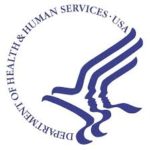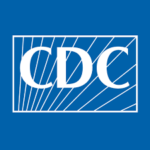The following is the latest health policy news from the federal government for November 8-14. Some of the language used below is taken directly from government documents.
 ASH Advocacy
ASH Advocacy
ASH has written to all House members asking them to join a letter to House leadership seeking another delay in implementation of an $8 billion cut in Medicaid disproportionate share (Medicaid DSH) payments scheduled to take effect on January 1. Learn more from ASH’s message to House members.
Election Update
House of Representatives
Though the outcome of nine races for seats in the House remains undecided, Republicans have won enough seats to control the House in the new Congress. Yesterday, Republicans voted to nominate the current Speaker of the House, Mike Johnson (LA), for Speaker in the new Congress and will hold the vote for that position when the 119th Congress convenes in Washington, D.C. on January 3. It is expected, after all the races have been decided, that the make-up of the House will be 222 Republicans and 213 Democrats, though so far President-elect Trump has nominated three Republican representatives for positions in his administration and there may be more such nominations to come. House Democrats will hold leadership elections on November 19 and 20 and there do not appear to be any threats to the top three positions for Minority Leader Jeffries (NY), Minority Whip Katherine Clark (MA), and Caucus Chair Pete Aguilar (CA). Committee leadership and membership decisions are still being decided and will be finalized in January.
Senate
Republicans also have gained control over the Senate in the new Congress, even with the race between current Pennsylvania Senator Bob Casey (D) and Dave McCormick (R) headed for a recount and even with the nomination of Sen. Marco Rubio (FL) to serve as the incoming Trump administration’s Secretary of State. Republican senators have elected John Thune (SD) to be their new Majority Leader, John Barrasso (WY) to be Majority Whip, and Tom Cotton (AR) to be Conference Chair. Senate Democrats have not yet scheduled their leadership elections for the 119th Congress. Senators in two of the current Democratic leadership positions, Debbie Stabenow (MI) and Joe Manchin (WV), did not seek reelection, so there will be opportunities for new faces in those positions; otherwise, we expect Senate Democratic leadership to remain mostly the same. Committee make-up and leadership in the Senate will officially be decided at some point after all party leaders have been elected. In the meantime, Sen. Bill Cassidy (R-LA) has no challengers to chair the Health, Education, Labor, and Pensions (HELP) Committee and released an announcement that he will chair the committee in the 119th Congress.
The Incoming Administration
President-elect Trump has begun nominating potential cabinet members but has not yet nominated a Secretary of Health and Human Services. Robert F. Kennedy, Jr., Ben Carson, Bobby Jindal, Eric Hargan, Seema Verma, and Paul Mango are all considered potential choices to lead the department in the new administration.
 The Lame Duck Session of Congress
The Lame Duck Session of Congress
Both chambers of Congress reconvened this week to begin work to close out the 118th Congress. Year-end activity will center on funding the federal government beyond December 20, when the current continuing resolution (CR) expires, and addressing various policy extensions. It is yet unknown whether Congress will pass the 12 appropriations bills for funding for the rest of the federal fiscal year through next September or if it will pass another CR to permit the incoming Republican-controlled government to determine spending and policy priorities. It is widely expected that the health care provisions that are currently set to expire in December will be extended as part of whatever spending bill Congress passes. Those health care provisions include the extension of COVID-era telehealth flexibilities and the Acute Hospital at Home Program; funding for community health centers, low-volume hospitals, and Medicare-dependent hospitals; and continued abeyance of the implementation of cuts to Medicaid DSH payments. Relief for cuts to physician payments also may be included in any end-of-year legislation.
 Centers for Medicare & Medicaid Services
Centers for Medicare & Medicaid Services
- CMS has released the 2025 premiums, deductibles, and coinsurance amounts for Medicare Part A and Part B and the 2025 Medicare Part D income-related monthly adjustments. Highlights include:
- The standard monthly premium for Medicare Part B enrollees will be $185 for 2025, an increase of $10.30 from $174.70 in 2024.
- The annual deductible for all Medicare Part B beneficiaries will be $257 in 2025, an increase of $17 from the annual deductible of $240 in 2024.
- The Medicare Part A inpatient hospital deductible that beneficiaries pay if admitted to the hospital will be $1,676 in 2025, an increase of $44 from $1,632 in 2024. Beneficiaries must pay a coinsurance of $419 a day for the 61st through 90th day of a hospitalization ($408 in 2024) in a benefit period and $838 per day for lifetime reserve days ($816 in 2024).
- For beneficiaries in skilled nursing facilities, the daily coinsurance for days 21 through 100 of extended care services in a benefit period will be $209.50 in 2025; it was $204.00 in 2024.
Learn more from this CMS fact sheet and from the following regulations:
-
- calendar year 2025 inpatient hospital deductible and hospital and extended care services coinsurance amounts
- calendar year 2025 Medicare Part A premiums for the uninsured aged for certain disabled individuals who have exhausted other entitlement programs
- Medicare Part B monthly actuarial rates, premium rates, and annual deductibles beginning on January 1, 2025
- Beginning on January 1, CMS will reduce the time frame for Medicare Administrative Contractors to review Medicare fee-for-service standard prior authorization requests to no more than seven calendar days and has published the following resources to help providers navigate this change:
- CMS has updated its web page and FAQ for PrEP treatment for HIV and related preventive services. Among the considerations the updated web page addresses are what Medicare covers, patient eligibility, costs, Part D coverage, billing and codes, and more. Find the PrEP treatment for HIV web page here.
- CMS has posted two bulletins summarizing ICD-10 and other coding revisions and additions to national coverage determinations that will take effect next April. Find those bulletins here and here.
- CMS has updated its information about how to check the status of patients’ Medicare claims. Find the update here.
- In a status report on performance year 2023 of the ACO REACH (Realizing Equity, Access and Community Health) model, CMS reported that the 132 participating plans generated $1.6 billion in gross savings, $694.6 million in net savings, and net savings to the ACOs of $948.4 million, with 96 percent of the plans earning shared savings. Seventy-nine percent of ACOs in the global risk option and 67 percent in the professional risk option earned shared savings; 32 of 132 earned total quality scores of 100 percent; and 73 of 83 met continuous improvement/sustained exceptional improvement requirements. Learn more from CMS’s summary of the financial and performance highlights of its report for performance year 2023; the full report will be released next year.
- Following up on adoption of the Clinical Laboratory Improvement Amendments of 1988 (CLIA) Proficiency Testing Regulations Related to Analytes and Acceptable Performance final rule that took effect on July 11 but will not be implemented until January 1, 2025, CMS has updated its proficiency testing (PT) and PT referral brochure to help laboratories prepare for the new regulations. The brochure will help laboratories complete PT enrollment and place orders with their PT providers for 2025 and informs laboratories of the upcoming changes necessary for compliance prior to the January 1, 2025 implementation date. Find the brochure here and the final regulation here.
- CMS has added a test to its list of CLIA waived tests as of January 1. Learn about this addition from this CMS bulletin.
- CMS has published a report that presents summary information on the quality of health care received by people with Medicare nationwide that highlights rural-urban differences in health care experiences and clinical care; how rural-urban differences in health care experiences and clinical care vary by race and ethnicity; and historical trends in quality of care for rural and urban residents. Learn more from the CMS report “Rural-Urban Disparities in Health Care in Medicare.”
- CMS has published “Re-imagining Rural Health: Themes, Concepts, and Next Steps from the CMS Innovation Center ‘Hackathon’ Series.” The report describes lessons learned from the Center for Medicare and Medicaid Innovation models focused on rural health and their application to recent model development and potential areas the agency might explore to support rural communities. It also highlights themes and insights from CMMI’s 2024 Rural Health Hackathon, which brought together rural health providers, community organizations, industry and tech entrepreneurs, philanthropies, policy experts, and patients to generate creative and actionable solutions to address the challenges of delivering quality health care in rural communities. Find the report here.
- CMS has posted its annual announcement for providers about participating in Medicare and additional information about participation versus non-participation.
- CMS has contracted for the development of behavioral health measures and inpatient and outpatient measure maintenance for quality reporting and payment programs. As part of this undertaking, its contractor is creating groups of interested parties and experts to contribute guidance and input to its work and analysis. Meetings of these groups are conducted virtually and will focus on soliciting review, prioritization, and feedback on new measure concepts, draft measure specifications, and results from alpha and beta testing and public comment. Learn more about the project, the qualifications CMS seeks among members of the technical experts panel, the time commitment involved, and how to apply to participate from this CMS notice (scroll down to “Behavioral Health Measures Development and Inpatient and Outpatient Measures Maintenance” and click there). The deadline for applying to participate is January 15.
- CMS has issued a memo to states about the importance of ensuring consistency in the hospice survey process so states can identify quality of care concerns and potential fraud issues. The memo outlines how states can improve their hospice surveys. Find the memo here.
 Department of Health and Human Services
Department of Health and Human Services
- Based on a review of 100 hospitals, HHS’s Office of the Inspector General estimates that 46 percent of the 5,879 hospitals that are required to comply with HHS’s hospital price transparency rule do not meet with that rule’s requirements to make information on their standard charges available to the public. Learn more from this OIG report, which also offers recommendations for encouraging greater hospital compliance.
- The Affordable Care Act established a National Background Check Program, which provided federal financial assistance for states to develop or enhance systems for long-term-care settings to conduct background checks on prospective employees. Twenty-nine states participated in the program, which ended in May. Now, HHS’s OIG has issued a final report on the program, concluding that it was successful in helping 27 states develop programs to identify efficient, effective, and economical procedures for conducting background checks on prospective long-term-care employees. Learn more from the OIG’s final assessment report.
- A study by HHS’s Office of the Assistant Secretary for Planning and Evaluation (ASPE) found an overall increase over a 10-year period in buprenorphine dispensed to women of reproductive age and a marked increase in prescriptions written by nurse practitioners/physician assistants. These findings suggest that many women of reproductive age with opioid use disorder are receiving treatment, with a prominent role being played by mid-level clinicians. The study also found low rates of prescribing by ob/gyns, suggesting a need for additional training of ob/gyns in screening and referral for treatment of opioid use disorders, along with training of additional maternity care providers such as physician assistants and nurse midwives. Learn more from the ASPE report “Buprenorphine Dispensing Among Women of Reproductive Age in the U.S. by Provider Type, 2013-2022 Data Brief.”
- HHS’s Office of Information Security and its Health Sector Cybersecurity Coordination Center have published a bulletin on “Godzilla webshell,” which they describe as “…a weapon used by cyber threat actors to execute commands, manipulate files, and engage in other harmful and malicious activity on victim systems as part of a larger cyberattack. It…has been used to target a number of industries, including the health sector. It is publicly available and therefore accessible for use by any number of bad actors, and should be treated as a serious threat.” The bulletin explains what Godzilla webshell is, how it works, describes known attacks using the technology, and offers advice about prevention, detection, and mitigation. Find the bulletin here.
HHS Newsletters
- CMS – MLN Connects – November 14
- AHRQ News Now – November 5
- HRSA eNews – November 12 (includes funding opportunities)
- HRSA – October in brief
- HRSA – Office for the Advancement of Telehealth announcements – November 13
 Centers for Disease Control and Prevention
Centers for Disease Control and Prevention
The rate of hospital-acquired infections in acute-care hospitals, critical access hospitals, inpatient rehabilitation facilities, and long-term acute-care hospitals declined in 2023, according to a new CDC report that offers data on specific types of infections broken down by provider types. Learn more from this CDC report.
Medicare Payment Advisory Commission (MedPAC)
MedPAC’s commissioners met virtually last week for two days. The issues on the meeting’s agenda were:
- reforming physician fee schedule updates and improving the accuracy of payments
- considering the participation bonus for clinicians in advanced alternative payment models
- structural differences between the prescription drug plan and Medicare Advantage prescription drug plan markets
- assessing Medicare Advantage provider networks
- Medicare’s coverage limits on stays in freestanding inpatient psychiatric facilities
Go here for summaries of the issues and key points and links to the presentations delivered by MedPAC staff and find a transcript of the two-day session here.
 Government Accountability Office (GAO)
Government Accountability Office (GAO)
- Health insurance market concentration generally increased from 2011 through 2022, with three or fewer insurers holding at least 80 percent of the market share for the individual and employer group markets in at least 35 states. The markets for individuals became slightly less concentrated from 2020 to 2022. Learn more from the GAO report “Private Health Insurance: Market Concentration Generally Increased from 2011 through 2022.”
- As the lead federal agency for the health care and public health sector, HHS is responsible for strengthening cybersecurity in the sector. The agency is struggling in this role, the GAO concludes in its new report “Healthcare Cybersecurity: HHS Continues to Have Challenges as Lead Agency.”
- The Department of Labor and Small Business Administration need to improve their processes for identifying and recovering COVID-19 relief-related overpayments, the GAO has concluded in this new report, which also offers recommendations on how the agencies can do this.
 Stakeholder Events
Stakeholder Events
CMS – Leadership Call – November 20
CMS administrator Chiquita Brooks-LaSure and her leadership team will provide an update on the agency’s recent accomplishments and announcements. The webinar be held on Wednesday, November 20 at 2:00 (eastern). Go here to learn more and to register to participate.
HHS – Office of the Assistant Secretary for Health – Greenhouse Gas Reduction Fund Opportunities for the Health Sector Webinar – November 20
HHS’s Office of the Assistant Secretary for Health, its Office of Climate Change and Health Equity, and two recipients of Environmental Protection Agency Greenhouse Gas Reduction Fund grants will present information on current plans to finance clean energy projects across the country and how the health sector can pursue such funding. The webinar will be held on Wednesday, November 20 at noon (eastern). Go here to register to participate.
CMS – Rural Health Open Door Forum – November 21
CMS will hold an open-door forum for rural health leaders on Thursday, November 21 at 2:00 (eastern). Go here to register to participate.
CMS – Long Term Services and Supports Open Door Forum – December 3
CMS will hold an open-door forum for providers of long-term services and supports on Tuesday, December 3 at 2:00 (eastern). Go here to register to participate.
HHS – Office of the Assistant Secretary for Technology Policy – Annual Meeting – December 4-5
HHS’s Office of the Assistant Secretary for Technology Policy will hold its annual meeting in Washington, D.C. on Thursday, December 4 and Friday, December 5. Participants will hear about key issues at the intersection of health care, public health, policymaking, and technology through a variety of keynote speakers and main stage, breakout, and education sessions. Go here for additional information and to register to attend.
CMS – Skilled Nursing Facilities/Long Term Care Open Door Forum – December 5
CMS will hold an open-door forum for skilled nursing home and long-term-care providers on Thursday, December 5 at 2:00 (eastern). Go here to register to participate.
CMS – ESRD Open Door Forum – December 10
CMS will hold an open-door forum for ESRD providers on Tuesday, December 10 at 2:00 (eastern). Go here to register to participate.
CMS – Home Health, Hospice, and DME Open Door Forum – December 11
CMS will hold an open-door forum for home health, hospice, and DME providers on Wednesday, December 11 at 2:00 (eastern). Go here to register to participate.
CMS – 2024 CMS Optimizing Health Care Delivery to Improve Patient Lives Conference – December 12
CMS will hold a virtual conference that will convene change-makers from the health care community and federal government to share innovative ideas, lessons learned, and best practices that strengthen patient health care delivery and access to high-quality care by reducing the administrative burdens that affect patients and the health care workforce. The conference will be held on Thursday, December 12 at 11:00 (eastern). Go here for further information and to register to participate.
MedPAC – Commissioners Meeting – December 12-13
MedPAC’s commissioners will hold their next public meeting on Thursday, December 12 and Friday, December 13. Information about participating in the meeting and the meeting’s agenda is not yet available but when it is it will be posted here.
MACPAC – Commissioners Meeting – December 12-13
MACPAC’s commissioners will hold their next public meeting on Thursday, December 12 and Friday, December 13. Information about participating in the meeting and the meeting’s agenda is not yet available but when it is it will be posted here.
CMS – Hospital Open Door Forum – December 17
CMS will hold an open-door forum for hospital officials on Tuesday, December 17 at 2:00 (eastern). Go here to register to participate.
CMS – Physicians, Nurses, and Allied Health Professionals Open Door Forum – December 19
CMS will hold an open-door forum for physicians, nurses, and allied health professionals on Thursday, December 19 at 2:00 (eastern). Go here to register to participate.

 Centers for Medicare & Medicaid Services
Centers for Medicare & Medicaid Services Stakeholder Events
Stakeholder Events